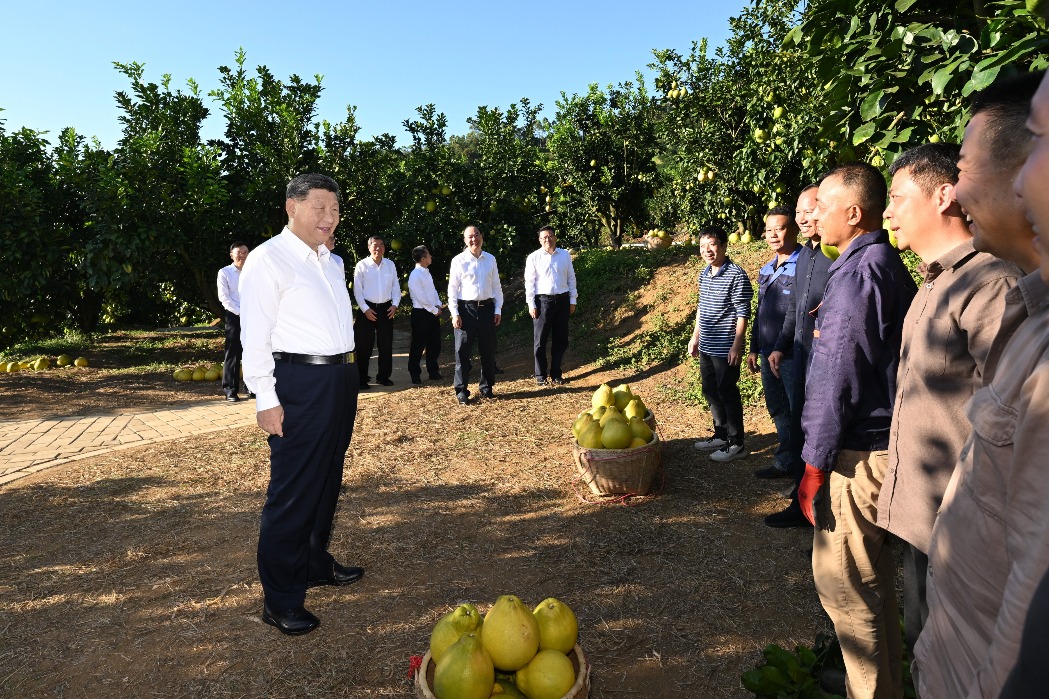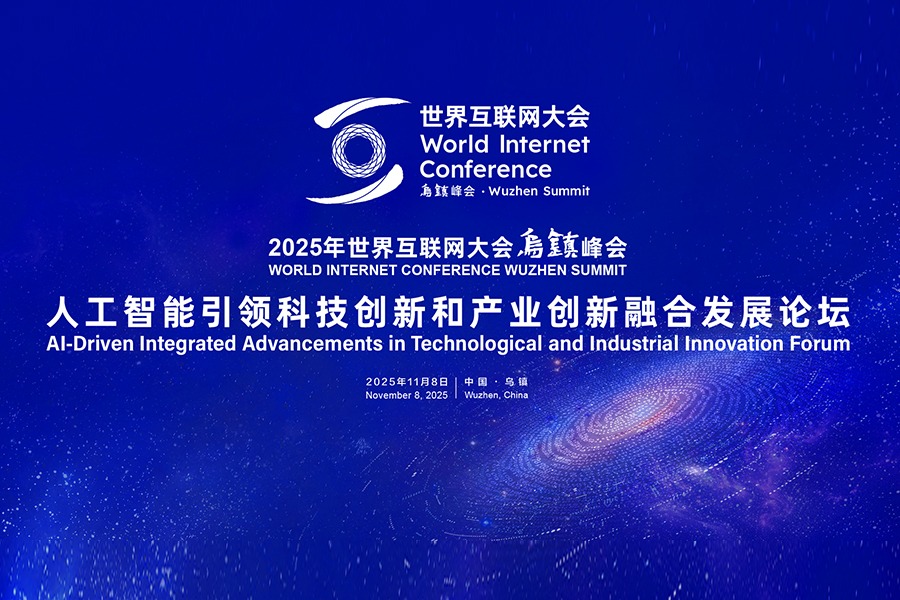Moving forward


South-South cooperation must be rooted in solidarity and sustainability if it is to stand as a genuine pillar of global governance
This year marks the 80th anniversary of the founding of the United Nations, inviting reflection on the role of solidarity among developing nations in shaping global progress. At a time of rising geopolitical competition, economic uncertainty and climate instability, cooperation across the Global South has never been more important. China, as the largest developing country, has become a pivotal actor in South-South cooperation, promoting trade, infrastructure, investment and knowledge exchange.
Over the past several decades, China has redefined the scope and impact of South-South cooperation. Its achievements are most visible in infrastructure and connectivity. Through initiatives such as the Belt and Road Initiative, Chinese enterprises have built highways, ports, and energy and digital infrastructure that link economies and reduce bottlenecks. The Jakarta-Bandung High-Speed Railway in Indonesia, which began operations in late 2023, symbolizes this approach with rapid execution, advanced technology transfer and visible improvements in connectivity. Similar stories can be seen in Africa, South Asia and Latin America, where Chinese-led projects have empowered development pathways.
China's leadership in renewable energy and digital technology is another important contribution. It is now the world's largest producer of solar panels, wind turbines and electric vehicles. The costs of these technologies have fallen sharply in recent years, driven by economies of scale. For many developing countries, this has made the energy transition more affordable. In the digital sector, Chinese companies have expanded mobile networks, e-commerce platforms and fintech systems across the Global South, providing millions of small businesses and households with the new tools for growth.
These achievements reflect the distinctive characteristics of China's South-South cooperation model. It is pragmatic and demand-driven, often negotiated directly with host governments. It blends aid, trade and investment, making projects financially viable and commercially sustainable. It also emphasizes speed and scale, allowing partners to see tangible results quickly.
Indonesia's partnership with China captures both the promise and the complexity of South-South cooperation. Trade has expanded rapidly. China has been Indonesia's largest trading partner for over a decade, with bilateral trade exceeding $147.8 billion in 2024. Indonesia exports nickel, coal, palm oil and rubber, while importing machinery, electronics and intermediate goods vital for industrial upgrading. This exchange has bolstered Indonesia's growth and improved the daily lives of local people.
Chinese investment in Indonesia has been transformative. In 2024, foreign direct investment from China reached around $8 billion, focused heavily on downstream mining, electric vehicle batteries and logistics. The Indonesia Morowali Industrial Park in Central Sulawesi is an example. Built with Chinese capital and expertise, it has propelled Indonesia into the global nickel supply chain, positioning the country as a key player in EV manufacturing.
Infrastructure cooperation has deepened as well. The Jakarta-Bandung High-Speed Railway has reduced travel times, created jobs and established a new technology ecosystem. The project is now a symbol of Southeast Asian integration, even as debates continue about financing and governance. Beyond transport, Chinese support during the COVID-19 pandemic in the form of vaccines and medical supplies reinforced the solidarity dimension of South-South cooperation.
Agriculture and digital technology are additional areas of collaboration. Chinese assistance with hybrid rice varieties and aquaculture has improved food security, while e-commerce platforms have opened export opportunities for Indonesian small and medium-sized enterprises.
Still, the vibrant partnership is occasionally tested by the complexities of global trade. The Indonesian authorities have imposed anti-dumping duties on Chinese imports, such as nylon film, in response to concerns about local industry competitiveness. These measures reflect the balance that policymakers must strike between openness to investment and protection of domestic producers.
Overall, Indonesia's experience highlights the benefits of South-South cooperation with China. This collaboration has yielded concrete gains in industrialization, connectivity and technology transfer. The ongoing evolution of this relationship continues to emphasize mutual benefits and increasingly balanced trade relations.
As the UN enters its ninth decade, the role of South-South cooperation must be considered not as an alternative to multilateralism but as a complement. China's Global Development Initiative and Global Governance Initiative signal its intention to contribute more actively to the reform of international institutions.
For Indonesia, it can engage China strategically, negotiating technology transfer based on national conditions, building more robust supplier networks, and aligning more investment with national climate and development goals. For the wider Global South, the task is to ensure that cooperation not only accelerates growth but also strengthens autonomy and resilience in a multipolar world.
China's role in South-South cooperation has transformed development landscapes across Asia, Africa and beyond. Its achievements in infrastructure, renewable energy and digital technology have created opportunities unimaginable several decades ago.
This demonstrates that cooperation must be rooted in solidarity and sustainability if it is to stand as a genuine pillar of global governance. As the UN marks its 80th anniversary, China and its partners in the Global South have an opportunity to shape cooperation into a force not only for growth but also for equity, resilience and peace. The next chapter will depend on whether this opportunity is seized.
The author is an assistant professor at the Faculty of Economics and Business at the Indonesian International Islamic University, and a member of the advisory board at the Reform Initiatives, Indonesia. The author contributed this article to China Watch, a think tank powered by China Daily.
The views do not necessarily reflect those of China Daily.
Contact the editor at editor@chinawatch.cn.

































